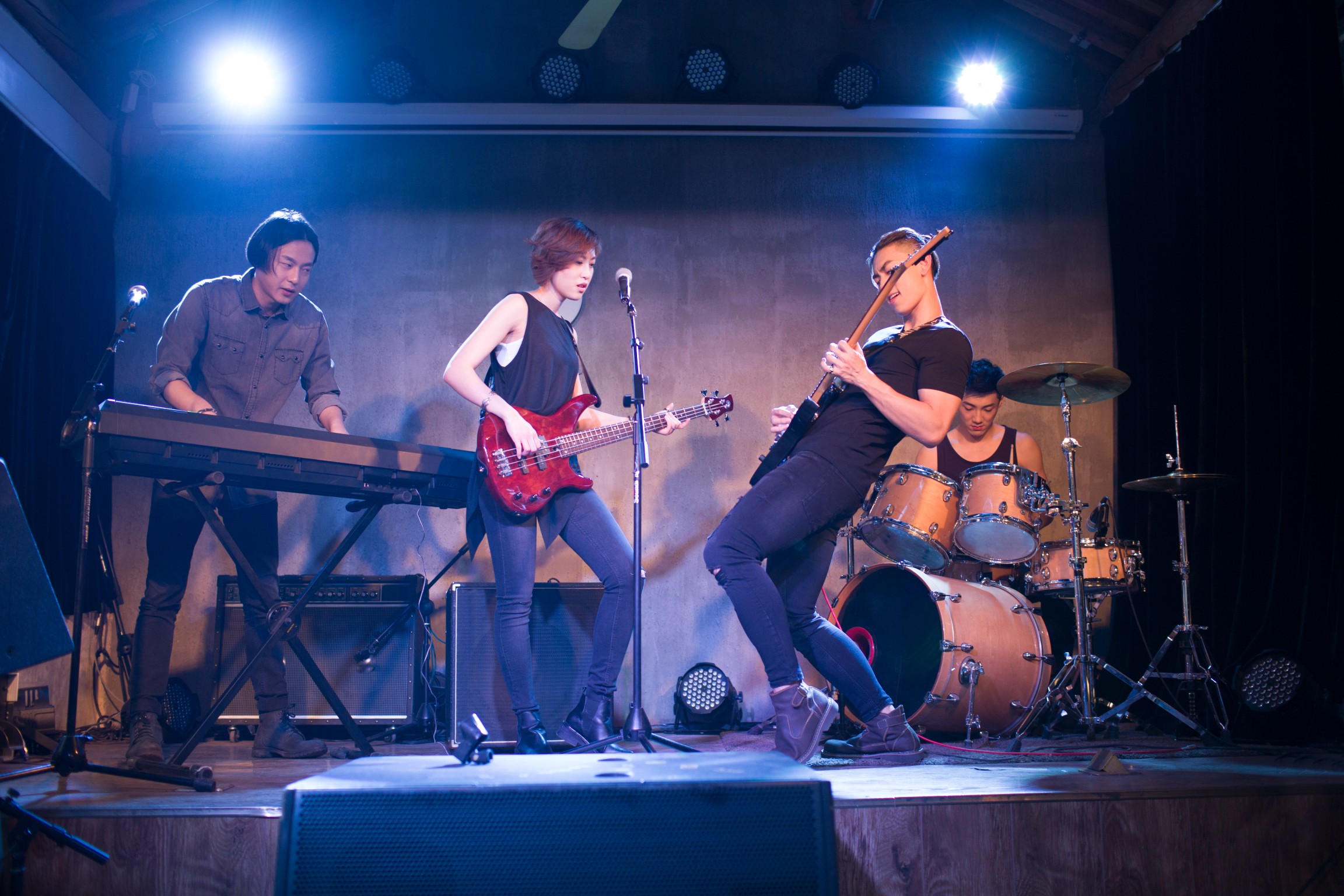Revolutionizing Live Music Performances: Technology Taking Center Stage

Live music performances are the beating heart of the music industry, where artists connect directly with their audiences, creating unforgettable moments. From intimate acoustic sessions to electrifying stadium concerts, live events are a significant revenue driver and a vital part of an artist's brand.
However, the live music landscape has faced considerable challenges, including logistical complexities, rising costs, and disruptions caused by the pandemic. Technology is reshaping live performances, enabling hybrid concerts, enhancing audience engagement, and optimizing event operations. This blog explores how innovation is transforming the world of live music performances.
1. Logistical Complexity
Coordinating multiple stakeholders—artists, technicians, vendors, and venues—is a monumental task. Last-minute changes or delays can disrupt events and inflate costs.
2. Unpredictable Revenue Models
Ticket sales, sponsorships, and merchandise revenue are often volatile, impacted by economic factors and audience behavior.
3. Limited Accessibility
Physical venues cap attendance, excluding fans who live far away or can’t afford travel and tickets.
4. Rising Costs
Expenses for production, sound systems, lighting, security, and venue rentals are steadily increasing, putting pressure on organizers and artists alike.
5. Safety and Security Concerns
Ensuring crowd safety while maintaining a seamless experience is a constant challenge, especially at large-scale events.
1. Hybrid and Virtual Concerts
The pandemic accelerated the adoption of hybrid models, combining physical and virtual events to reach wider audiences.
Virtual Platforms: Tools like Wave and StageIt enable artists to perform in virtual environments, creating immersive experiences for global audiences.
Hybrid Revenue Streams: Artists can monetize virtual tickets, exclusive digital content, and live merchandise sales.
2. AI for Logistics and Production
Artificial intelligence is streamlining event planning and execution.
Smart Scheduling: AI tools analyze tour schedules, venue availability, and travel logistics to create optimized plans.
Sound Engineering: AI-powered systems like L-Acoustics’ L-ISA deliver precision soundscaping, enhancing audio quality for live audiences.
3. Augmented Reality (AR) for Enhanced Experiences
AR is creating interactive elements that elevate the concert experience.
AR Visual Effects: Fans can use AR apps to see holographic visuals synced with the performance.
Immersive Storytelling: Artists like Travis Scott have used AR to deliver unique narratives during virtual concerts.
4. Advanced Ticketing Solutions
SaaS platforms are revolutionizing ticketing, offering dynamic pricing, fraud prevention, and seamless access.
Blockchain Ticketing: Tools like True Tickets issue tamper-proof digital tickets, reducing scalping and counterfeit sales.
Dynamic Pricing Models: Platforms like TixTrack adjust ticket prices in real time based on demand and availability.
5. Data-Driven Audience Engagement
Data analytics tools provide insights into fan behavior, enabling personalized experiences.
Fan Insights: Platforms like FanCompass track fan preferences and tailor marketing campaigns.
Real-Time Feedback: Polling apps and live chat tools engage virtual attendees, creating two-way interactions.
1. BTS’s Online Concert Success
K-pop superstars BTS set new benchmarks for virtual concerts with their "Bang Bang Con" series, attracting millions of global viewers through a paid livestream model and interactive fan elements.
2. Travis Scott’s Fortnite Concert
Travis Scott’s groundbreaking virtual performance in Fortnite drew over 12 million live attendees, demonstrating the potential of gaming platforms as concert venues.
3. Billie Eilish’s AR-Enhanced Livestream
Billie Eilish’s Where Do We Go? virtual tour incorporated AR effects and 3D environments, delivering an immersive experience that blurred the line between physical and virtual events.
1. Fully Immersive Virtual Worlds
With advancements in the metaverse, artists will perform in virtual venues where fans can interact, socialize, and even purchase digital merchandise.
2. AI-Powered Crowd Management
AI will play a key role in ensuring safety and efficiency at physical events by analyzing crowd density, identifying potential risks, and optimizing entry/exit flows.
3. Biometric Ticketing
Facial recognition and biometric authentication will streamline ticket validation, reducing wait times and preventing fraud.
4. Decentralized Performance Platforms
Blockchain-based platforms will allow artists to directly stream and monetize their performances without intermediaries, empowering independent musicians.
5. Green Concerts
Sustainability will become a major focus, with eco-friendly sound systems, renewable energy-powered stages, and digital ticketing reducing the environmental impact of live performances.
Here are some standout SaaS solutions transforming live music events:
Wave: Virtual concert platform enabling artists to perform in immersive digital environments.
StageIt: Offers live streaming and monetization tools for online performances.
TixTrack: Provides advanced ticketing solutions, including dynamic pricing and audience analytics.
FanCompass: Enhances fan engagement with personalized campaigns and data insights.
True Tickets: Blockchain-based ticketing system for secure, fraud-free access.
Live music performances are undergoing a renaissance, blending physical and virtual worlds to create unique and engaging experiences for fans. By embracing technology, artists and organizers can overcome logistical hurdles, enhance audience connections, and unlock new revenue streams. The future of live music is not just about concerts—it’s about immersive, personalized, and sustainable experiences that transcend physical boundaries.
As the industry evolves, the integration of cutting-edge tools will ensure that live performances remain a vital, vibrant part of the music ecosystem.